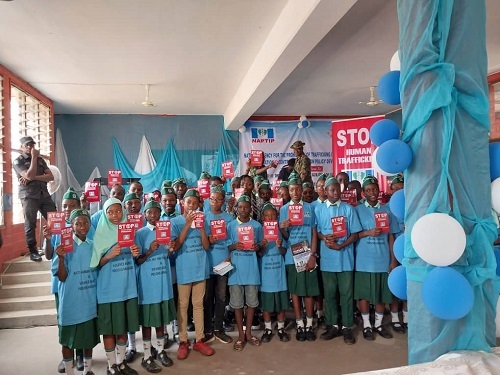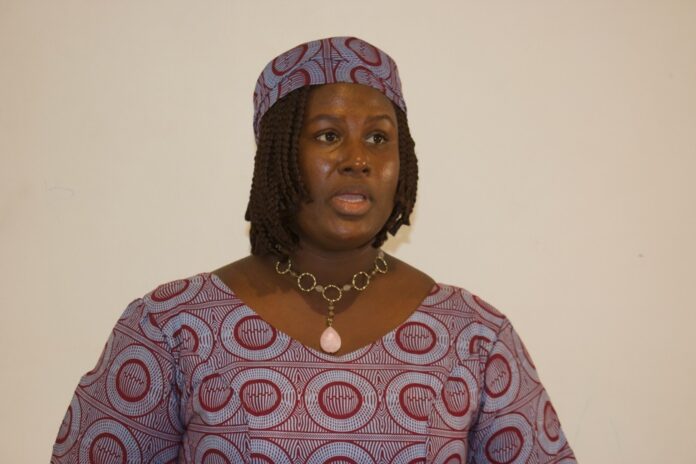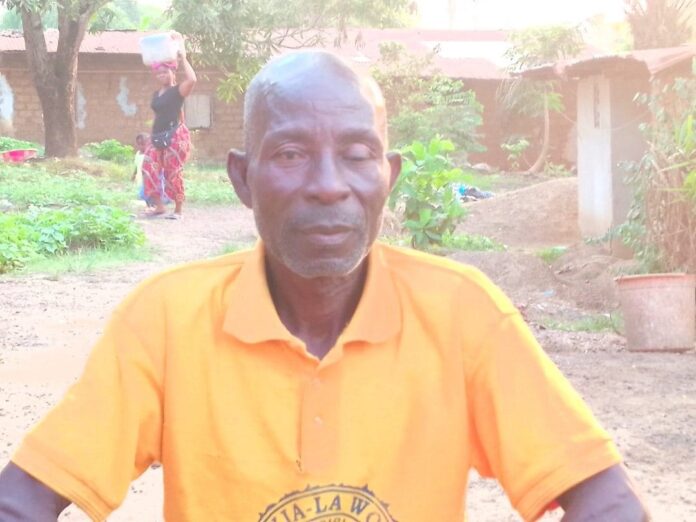Fourteen-year-old Nigerian boys are now being trafficked to Ghana, Liberia and Sierra Leone and forced into internet fraud, the National Agency for the Prohibition of Trafficking in Persons (NAPTIP) said yesterday.
She said those unable to meet their daily targets are beaten or starved by traffickers who initially lured them with promises of good jobs and a better life in those countries.
Prof Waziri-Azi said the agency last year rescued 21 boys from Ghana who were forced into fraud and another 19 years old girl of an Abuja private university who was promised a modelling gig but forced into prostitution in Ghana.
The DG made this known at the launch of the Anti-Human Trafficking Vanguard at the Army Command School, Lungi Barracks, Asokoro, Abuja.
She said: “The purpose of the Vanguard is to establish a platform where young people can educate and sensitize themselves and others on issues of human trafficking and Violence against persons.
“Last year we rescued a 19-year-old girl that was in a private university here in Abuja. She met somebody on Instagram who told her that she was beautiful and he had a modelling job for her. She abandoned her studies and her parents were looking for her for three months, we ended up locating her in Ghana, where she was taken for prostitution. After the father reported to us, we collaborated with our counterparts in Ghana to rescue her.
“That is one of the tricks human traffickers use, they pretend to be the same age as their victims, befriend and recruit them.
They put up links on social media for free scholarships and jobs, that one is called fishing, when they post and wait for it to be clicked. Now traffickers go on social media to like fine pictures like friends would and when they see that the picture is of one that would generate money for them, they start hunting the victim.
“Another one we discovered last year is called Qnet, last year we rescued about 21 young boys with 14 years old boys amongst them. They were told they had jobs for them in Ghana, when they arrived, their passports and phones were sized, they were locked in a room and given a crash course on online scam. They were then given targets and those who could not meet the targets where beaten or starved.
“We rescued 23 victims from Ghana last year. This crime is common In Ghana, Liberia and Sierra Leone but for Nigeria they traffick our young boys out to do these scams.
“Another popular form of trafficking is sextortion, this is where you think that you are talking to a normal person on the internet, who would gradually start grooming you, make you think you are in love and ask for inappropriate pictures of yourself especially nudes, they would use the picture to blackmail you for sexual favours or money.
“The way we used to think of human trafficking has changed and the only way to prevent it is through education because it can happen in plain sight and people might not recognise it. These days, people are trafficked by people they know than strangers.” Source: thenationonlineng.net







